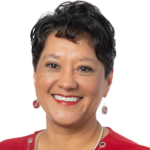From the moment we hold our children, we begin to fantasize and hope about the type of people they will become. We dream about their potential future and their experiences and influences on the world. As our children grow, we introduce them to their surroundings and contribute to their learning through experiences, teaching them along the way all they will need to be their best selves. As they engage in their education, differences sometimes arise in the way they process information, apply their learning, and/or their ability to learn at the same rate as their peers.
Emotions When Differences Arise
As caring parents, it is normal to feel anxiety, worry, or even guilt when faced with the reality of those differences. However, we do not have to navigate this new reality on our own. There are a team of individuals trained and experienced to navigate this new awareness and help equip our children with the skills and strategies, so they can grow their capacity to achieve their best level of functioning and lead a healthy life.
When a difference in learning or emotional functioning is brought to our attention by either our observations of our child’s abilities as compared to their peers, a teacher, or family member, know that these differences are not an indication of failure in your parenting and in no way a reflection of your attempts to be the best parent for your child. Seek out and be empowered to begin building your child’s support team.
Community of Support
Through the medical community, there are licensed counselors or psychiatrists who can evaluate your child and help identify what, if any, diagnostic criteria are met to better understand your child’s functioning and how to address those differences. In the educational setting, there are educational diagnosticians, licensed school psychologists, and mental health professionals who are specialized in supporting students with both emotional and learning differences or eligibility conditions. Lastly, within our community, there are various associations specialized in helping individuals navigate a variety of conditions and characteristics including ADHD, Autism, Deaf and Hard of Hearing, Social Skills differences and various medical conditions.
As a lifelong provider of emotional support of children of all ages and a parent of a neurodivergent child, I understand the many levels of processing, grief, and growth that is characteristic of having a child with different needs. Seeking the support and creating a collaborative network of individuals in all facets of your child’s life is the best way to have them navigate the world and grow skills to achieve their best quality of life.
To learn more about our services in assessment, treatment, and collaboration with your child’s educators, visit here.
Additional Resources
The following services and agencies may also be able to provide you with the guidance necessary to build your child’s tribe:
Autism Society of North Carolina | Find Help
ADDA – Attention Deficit Disorder Association
Learning Disabilities Association of North Carolina – Support. Educate. Advocate.



